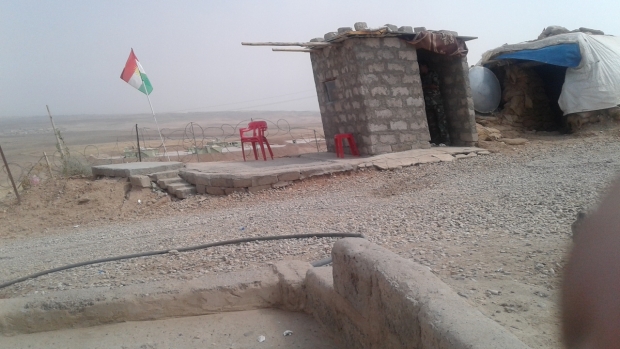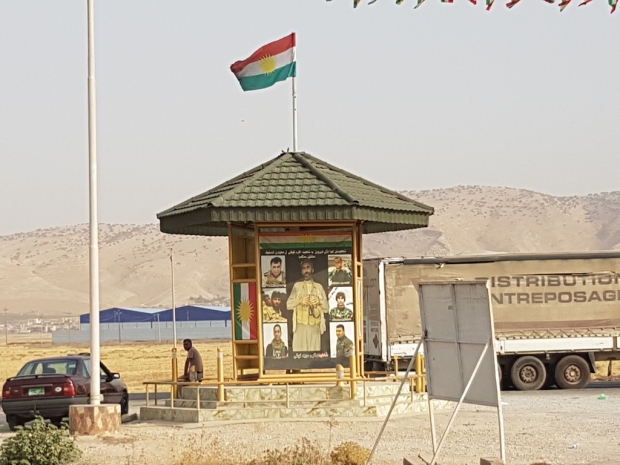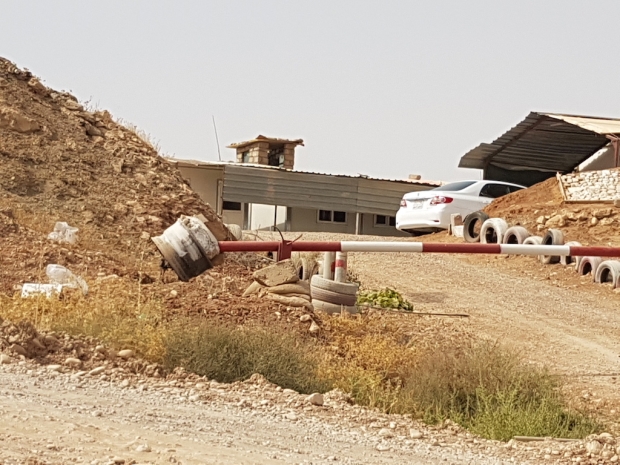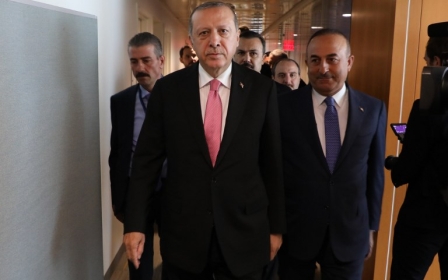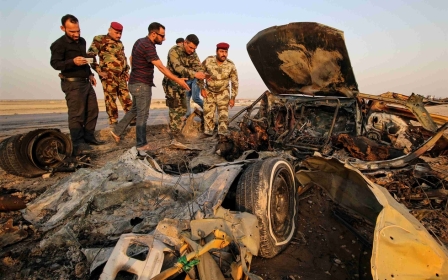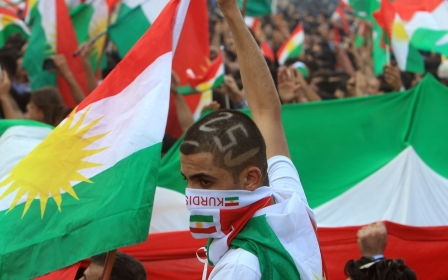Peshmerga '100 percent certain' Baghdad will fight independence
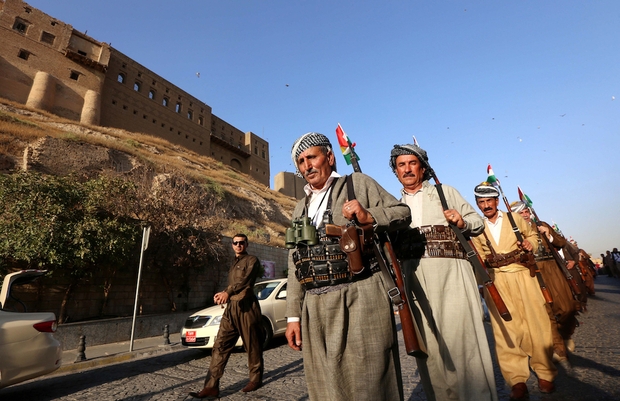
NAWARAN, Iraq - Peshmerga fighters said they are "100 percent certain" forces aligned with Baghdad will attempt to retake Kurdish-held territory after a 25 September referendum on independence.
Talking to Middle East Eye in Nawaran camp, north of Mosul in Nineveh province, Kurdish fighters say they are prepared to defend territory under their control against anyone who opposes them.
Nawaran overlooks a number of Arab villages and was originally the frontline against the Islamic State (IS) group. Peshmerga say the area could once again descend into violence - but this time the Hashd al-Shaabi, Shia fighting groups under the purview of Baghdad, would be on the other side.
"Islamic State made it to just down there," said Nawaf, a 30-year-old Peshmerga, gesturing at houses at the bottom of the hill on which the camp sits.
"Behind that village far away, that's a barricade of Peshmerga. Other side is Arabs - Hashd al-Shaabi and others," he said. "That's the barricade that separates Iraq and Kurdistan now."
Nawaran was liberated by Kurd forces from IS control but lies outside the original 2003 borders of the semi-autonomous Kurdish region.
Political leaders in the Kurdistan Regional Government (KRG) and Baghdad have already warned that disputed territory such as this could be flashpoints for violence after the 25 September referendum.
Nawaf said that it was "100 percent" to be the case, and the Peshmerga were dug in and ready. "We are ready now here in case of any violence or any offensive attack," he said.
"Our duty is to protect Kurdistan and to protect our line - the president ordered us to protect our line and stay in this line. Until he orders us to leave, we will stay here and fight with any enemy that attacks us."
Until what time are we going to stay as slaves under the hand of the Arabs?
- Nawaf, Peshmerga
On Wednesday, the Kurdish prime minister, Nechirvan Barzani, said he was confident that no military would attack the KRG even if the referendum went ahead.
"I do not see any military attack at all on the Kurdistan region. It is impossible," he said.
"Even if they take other measures, as allegedly they are going to do, a military option is impossible."
That stands in contrast to comments made by his Iraqi counterpart, Haider al-Abadi, who said that Baghdad would "intervene militarily" if Iraqis were "threatened by the use of force outside the law".
The Peshmerga in Nawaran, who control security around a number of surrounding Arab villages, said that come what may, they are ready to fight for their state.
"Anyone who announces their intention of fighting with Kurdistan, we are ready to fight them," said Wahid Abdullah Qadir, an older Peshmerga fighter.
He showed a wound he endured in 1986, a gaping hole in his arm that he suffered while fighting the forces of Saddam Hussein.
"I am 52 years old and I remember 45 years of my life, all the governments came to stand opposing Kurdistan, trying to defeat Kurdistan, whether Ahmed Hassan al-Bakr, Saddam Hussein, Nouri al-Maliki or Abadi - all of them, they stand against Kurdistan," he said, angrily.
He also slammed Iran for trying to undermine Kurdish independence.
"They created Hashd al-Shaabi to destroy Kurdistan," he said.
Another Peshmerga fighter, Farah Salim Karim, agreed that after all the Kurds had endured at the hands of successive Baghdad governments, it was only fair for Kurdistan to become independent.
"They beat us, they put us in prison, they did so many other things to us," he said.
Anger at western nations
The Peshmerga fighters also said they were angry at Western governments for failing to support independence, despite having been partners in fighting against IS.
The US, UK and European Union all released statements calling on Barzani to cancel or postpone the referendum over fears it would generate instability.
We wanted them to help us do the referendum. Why don't they help?
- Abdullah Qadir, Peshmerga
Abdullah Qadir said it was "unfair" that the US, UK and Europe had come out against Kurdish independence after they helped defeat IS.
"We wanted them to help us do the referendum - every power is under their hand," he said.
"Why don't they help us?"
Salim Karim also said he was angry at the foreign powers for failing to support the independence bid.
"Why they always do injustices with poor Kurdish people? We have a separate language, separate religion, separate ideas - why don't they support us to build a country for Kurdistan like the others have?"
A number of nations this week began working with Erbil and the UN to attempt to find an alternative to the vote, fearing the fallout may undermine the fight against IS, who still have a presence in Tal Afar, Hawija and other hotspots across Iraq.
But amid a move by the Iraqi Supreme Court to declare the referendum unconstitutional, threats from neighbouring Turkey to impose sanctions and moves by the Hashd to unseat local Kurdish politicians, Iraqi Kurds may begin to feel increasingly isolated.
Nawaf, who described himself as having been a Peshmerga since his "early childhood, when I was able to hold a weapon" said that after all the years of fighting and struggling for autonomy, he was disappointed at the lack of support the Iraqi Kurds were being shown.
"This is one of our rights, asking for independence," he said. "We hope they will change their thinking and help us."
"Until what time are we going to stay as slaves under the hand of the Arabs?"
This article is available in French on Middle East Eye French edition.
Middle East Eye propose une couverture et une analyse indépendantes et incomparables du Moyen-Orient, de l’Afrique du Nord et d’autres régions du monde. Pour en savoir plus sur la reprise de ce contenu et les frais qui s’appliquent, veuillez remplir ce formulaire [en anglais]. Pour en savoir plus sur MEE, cliquez ici [en anglais].


